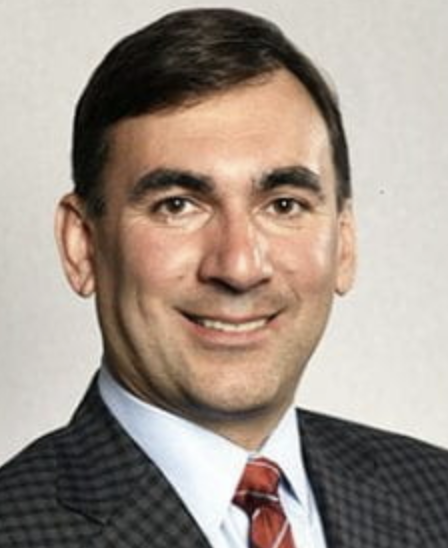Mrksich Named Interim Vice President for Research
 Milan Mrksich, the Henry Wade Rogers Professor at Northwestern, has been named Northwestern University’s Interim Vice President for Research, Provost Jonathan Holloway announced today (Sept. 12). Mrksich also will serve as a member of President Morton Schapiro’s senior staff.
Milan Mrksich, the Henry Wade Rogers Professor at Northwestern, has been named Northwestern University’s Interim Vice President for Research, Provost Jonathan Holloway announced today (Sept. 12). Mrksich also will serve as a member of President Morton Schapiro’s senior staff.
He will assume this new role effective Oct. 1, 2019, Holloway said.
Mrksich has appointments in the departments of Biomedical Engineering, Chemistry and Cell & Developmental Biology — in three of Northwestern’s schools. The nationally known, award-winning scientist is founding director of the Center for Synthetic Biology and a leader in developing surface chemistries for a range of applications in the life sciences. He is well-versed in understanding research across the University.
"Milan Mrksich is an extraordinary scientist and a leader in his field,” observed Holloway. “His experience as a senior researcher and center director gives us confidence in his leadership through this interim period, and we are very excited about Milan’s stewardship of the Office for Research during this time of transition.”
A search committee will be appointed in the fall to do a national search for a permanent successor in this role.
Mrksich will lead Northwestern’s Office for Research, which includes directing a research infrastructure with annual sponsored research funding totaling $797.8 million this past year. He also will lead the development and implementation of University-wide strategic plans that support high-impact research initiatives. Mrksich succeeds Jay Walsh, who was recently promoted to a new role, Senior Advisor to the President for Research and Science Initiatives.
“I am very honored to be asked to serve as the steward of our research enterprise,” said Mrksich. “Northwestern is a global leader across many fields of scientific and social science research, and I look forward to working with our faculty to build on our strengths and develop programs that will ensure our leadership in a rapidly evolving world.”
Mrksich joined Northwestern in 2011 from the University of Chicago, strengthening Northwestern’s presence in chemistry, nanosciences and bioengineering, and giving the synthetic biology program a major lift. Mrksich worked for years to develop a technology that measures biochemical reactions at an unprecedented throughput. The technology, which he dubbed SAMDI, or self-assembled monolayers desorption ionization, addressed a significant need in early-stage drug development. This method can evaluate millions of chemicals to identify those that are active in blocking protein function and that serve as a starting point for developing drug candidates that enter clinical trials.
“My multidisciplinary research program is rooted in chemistry but takes approaches from materials science with biological insights to develop materials with tailored properties for a variety of applications,” Mrksich observed.
“Most recently, my lab’s development of the SAMDI mass spectrometry method gives a ‘label-free’ method for analyzing reactions — and which now allows tens of thousands of reactions to be performed per day,” he added. “This represents a roughly 1,000-fold increase in the pace of experiments and is making possible experiments to address questions that were unthinkable just years ago.”
With his lab, Mrksich has published more than 200 papers and presented approximately 500 invited lectures on his work. Among the awards he has earned are the Searle Scholar Award, the Sloan Research Fellowship, the Dreyfus Teacher-Scholar Award, the American Chemical Society Arthur C. Cope Award, the iCON Innovator Award and the Pittsburgh Analytical Chemistry Award. He is also a fellow of the American Institute for Medical and Biological Engineering, and of the American Association for the Advancement of Science.
In addition to his work at Northwestern, Mrksich has contributed to national service, including having served as chair of the Defense Sciences Research Council, which is an advisory board to DARPA; on the Board of Governors for Argonne National Laboratory; and the chair of multiple NIH study sections.
As founding director of the Center for Synthetic Biology, Mrksich has helped oversee work on a new field that is learning how to engineer biology’s approaches for new purposes, including the green manufacture of chemicals, development of next generation therapeutics and sensors for a variety of purposes.
In addition, he also has served as the associate director for technology in the Robert H. Lurie Comprehensive Cancer Center, where he worked to ensure that state-of-the-art instrumentation and techniques are available to the Northwestern research community.
His extensive knowledge of research across disciplines at Northwestern is underscored by his appointments in three different schools: the McCormick School of Engineering, Weinberg College of Arts and Sciences and Feinberg School of Medicine. His roles in the cancer center, on many committees and his extensive collaborative research with other faculty have given Mrksich a broad perspective on the strengths and opportunities for advancing Northwestern’s research programs.
Mrksich also has a strong understanding of technology transfer and the translation of the University’s advances in basic sciences to benefit society. He is a co-founder of three companies, including SAMDI Tech, which applies his methods for early stage drug discovery. He has also served on a dozen scientific advisory boards of biotech companies.
Mrksich earned his B.S. in chemistry, magna cum laude, from the University of Illinois, Urbana-Champaign, in 1989. He earned his Ph.D. in organic chemistry from the California Institute of Technology, Pasadena, Calif., in 1994 and served as a postdoctoral scholar at Harvard University before beginning his independent career at the University of Chicago in 1996.
Mrksich lives in Hinsdale with his family and enjoys playing guitar, traveling and attending Northwestern football games.
By Storer Rowley